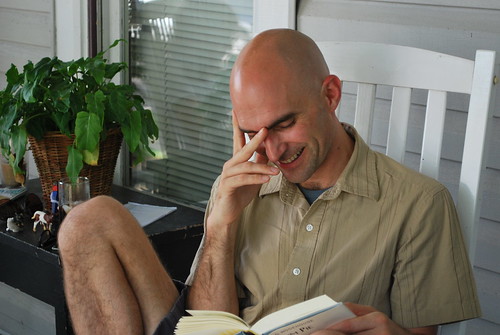At times, however, she seems to push a bit too far against the familiar storyline: again and again she'll quote a passage from one of Branwell's letters to friends in which he details drinking bouts--
I gave some stiffish toasts. . . . till the room spun round and the candles danced in our eyes. . . . I found myself in bed next morning with a bottle of porter, a glass, and a corkscrew beside me.--only to dismiss it:
No doubt in bragging about his exploits, the twenty-year-old Branwell exaggerated them to suit the older and more worldly John Brown: indeed, the whole account sounds suspiciously like one of the bar-room brawls in the his Angrian tales.Twenty-year-olds do exaggerate, but they also quite frequently drink to excess, even the ones who don't go on to be alcoholics. It doesn't seem unreasonable to assume that when Branwell told a friend he'd been drinking a lot, he'd probably been drinking a lot.
The above reference to Angria, the imaginary world of Branwell's and Charlotte's extravagant juvenilia, reminds me to share an earlier, fictional account of drinking that Branwell wrote. It tells of a rowdy drinking session among some of the leading men of the fictional nation, one of whom opens this passage by proposing a toast (the poor spelling is Branwell's):
"Its speedy entombement in our stomachs and its ressurection with us in another world!"Having grown up in the northern reaches of the Bible Belt, among a broadly Baptist-inflected temperance culture, I find Branwell's gentle blasphemy here quite amusing. Given his bad end, like any of his writings on drinking it's tinged with sadness, for we know what's to come. But much like Kingsley Amis's writings on the same subject, it's clever enough that it seems a shame not to share it.
The President himself contradicted such a toast swearing that He had enough to do with resurrection of its ghost next morning and Crofton had been vowed that after a full dinner and flowing glass he had too often been troubled with its resurrection the next minute.

